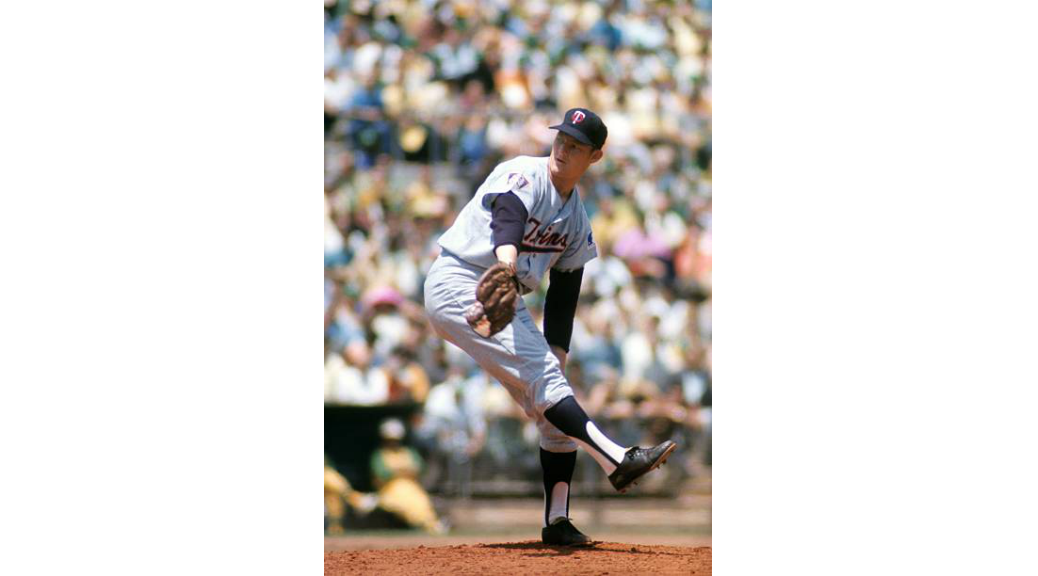Gary does a little cooking of his own here.
Monthly Archives: November 2018
FMD — The White Album
Yesterday was the 50th anniversary of The Beatles releasing their album The Beatles, or as it is commonly known The White Album. In celebration of the anniversary, the album was re-released with a remaster of the original, a bunch of demos and alternate takes, and other studio arcana. Here's a hagiographic article on it I highly suggest reading if interested.
https://www.newyorker.com/culture/cultural-comment/the-accidental-perfection-of-the-beatles-white-album
The common refrain of The White Albums was this was when the Beatles starting to break up. Many of the songs appeared to be one or two Beatle composing and recording on their own. One thing the re-release has shown as that they were much more collaborative than previously advertised. The so-called Escher Demos really point this out. I wish that the Escher Demos were in fact released as a stand alone. I would definitely pick that up.
My own history with The White Album goes back only 40 years or so. As a teenager, I listened to The White Album a lot, stoned, in my bean bag chair, with headphones. Which is what white suburban teenage boys did a lot of in the late 70s and early 80s. So I know this album intimately. Even as a teenager and into adulthood, some of the one-off songs bugged me so when I was able through I-tunes, I eliminated what I considered the crap songs. That left me with a solid 18 song album in the 55 minute range. It had a nice mix of the rockers and softer songs. I've listened to this version of The White Album for the last 10 years or so.
Reading some of the articles on the making of The White Album, I learned that there was discussion among the Beatles to release two albums instead of one double album. This intrigued me. My 18 song version could probably be broken down to a two album hard and soft version, in fact I could probably add Martha My Dear to the soft version to make it a bit longer, instead of an EP.
So below is my "Rock" version of the White Album. It's 12 songs, 37 minutes long and pretty much every song is a killer. Savoy Truffle makes it because the song rocks, even if the lyrics are dumb. Why Don't We Do it in the Road and Everybody's Got Something to Hide make it for the same reason. The order is the same as the original album except I put Revolution #1 at the end. It also follows the basic structure of mostly Lennon-McCartney songs, with a smattering of Harrison, and a Ringo song. The White Album is beloved because of its sprawling, druggy, vibe. If they had released my Rockin' White Album version, who knows how history would've been changed :o)
Back in the U.S.S.R.
While My Guitar Gently Weeps
Happiness Is a Warm Gun
I'm So Tired
Don't Pass Me By
Why Don't We Do It in the Road?
Birthday
Yer Blues
Everybody's Got Something to Hide Except Me and My Monkey
Helter Skelter
Savoy Truffle
Revolution 1
1969 Rewind: Game Fifty-three
MINNESOTA 6, BOSTON 2 IN MINNESOTA
Date: Tuesday, June 10.
Batting stars: Leo Cardenas was 2-for-3. Harmon Killebrew was 1-for-2 with a triple, two walks, a stolen base, two runs, and two RBIs.
Pitching star: Jim Kaat pitched a complete game, giving up two runs on seven hits and two walks and striking out two.
Opposition stars: Reggie Smith was 2-for-4. Carl Yastrzemski was 1-for-4 with a two-run homer, his fifteenth. Bill Landis retired all seven men he faced, striking out three.
The game: There were no baserunners until the third, when George Scott drew a leadoff walk and Ray Culp had a one-out bunt single. A double play ended the threat. The Twins came through with a five-spot in the bottom of the third. Cardenas led off with a single and scored on Kaat's one-out double. Ted Uhlaender singled to bring Kaat home. Rod Carew singled and Killebrew followed with a two-run triple. He scored on Rich Reese's single to make it 5-0.
The Red Sox got on the board in the sixth, when Jerry Moses led off with a single and Yastrzemski hit a two-out two-run homer. The Twins got one of the runs back in the bottom of the sixth when Killebrew singled, stole second, and scored on a Cardenas single, making the score 6-2.
That's where it stayed. The only other Boston threat came in the eighth, when Dick Schofield led off with a double. Kaat came back to strike out Dalton Jones and Yastrzemski and got Smith on a grounder.
WP: Kaat (6-4). LP: Culp (9-3). S: None.
Notes: Reese was again in left, with Nettles at third and Killebrew at first. Billy Martin made a defensive change, putting Frank Quilici at third in place of Nettles, in the seventh. In the eighth, Cesar Tovar pinch-ran for Killebrew and went to left field, with Reese going to first. I find it hard to believe that Quilici was a substantially better third baseman than Nettles, but this was early in Nettles' career, so I suppose it could be that he was at that time.
This was Kaat's fifth complete game of the season. He would end the year with ten. That was actually a low total for Kaat--he had eight seasons in which he had more than that. He led the league once, in 1966, when he had nineteen complete games.
Killebrew had twenty-four triples and nineteen stolen bases in his career. I don't know how many times he had both in the same game, but it was clearly a rare thing. His career high in triples was seven, in 1961. His career high in stolen bases was eight, in 1969.
Boston starter Ray Culp lasted just 2.2 innings, allowing five runs on six hits. He walked none and struck out none. He was a fine pitcher, though. He was up and down early in his career, having fine seasons in 1963 and 1965 but poor ones in 1964 and 1966. He was with Philadelphia then, but moved to the Cubs in 1967 and Boston in 1968. That was where he had his best seasons, going 64-44, 3.34 from 1968-1971. He pitched over two hundred innings each season and pitched a total of 493.2 innings in just 1970-1971. The workload may have taken a toll, because he did not have a good year after 1971 and was out of baseball by 1973. For his career he was 122-101, 3.58, 1.28 WHIP in 322 games, 268 of them starts. He made two all-star teams (1963 and 1969) and finished third in Rookie of the Year voting in 1963 (behind Pete Rose and Ron Hunt). Not a superstar, but a very respectable career.
Record: The Twins were 30-23, in first place in the American League West, 2.5 games behind Oakland.
Happy Birthday–November 23
This is a great day for names:
Chief Zimmer (1860)
Hi Church (1863)
Socks Seybold (1870)
George Stovall (1877)
Jimmy Sheckard (1878)
Runt Marr (1891)
Freddy Leach (1897)
Beans Reardon (1897)
Bubber Jonnard (1897)
Prince Hal Schumacher (1910)
Bill Gates (1918)
Charles Osgood (1926)
John Anderson (1929)
Jack McKeon (1930)
Luis Tiant (1940)
Tom Hall (1947)
Ken Schrom (1954)
Brook Jacoby (1959)
Dale Sveum (1963)
David McCarty (1969)
Adam Eaton (1977)
Jonathan Papelbon (1980)
Justin Turner (1984)
Runt Marr played in the minor leagues for nineteen years, managed in the minors for fifteen years, and was also a scout for many years.
Beans Reardon was a National League umpire from 1926-1949.
Bubber Jonnard was a long-time coach and scout.
Bill Gates was a minor league pitcher from 1938-1940 and 1946-1951.
Jack McKeon was a long-time manager and general manager, leading the Florida Marlins to a World Series victory in 2003. In 2011, he became the second-oldest manager in major league history at age 80. He also managed in the minor leagues for the Senators/Twins from 1957-64 and again in 1968, scouting for the Twins from 1965-67.
My Morning Jacket – Holdin on to Black Metal
It's great that MMJ has at least two songs I can use for late-November holidays.
November 23, 2018: Unlit Normally Last Business Day Of The Week
Wake up and go practice commerce! Unless you’re one of those weirdos that have already been up for hours. You’re on your own in that case.
1969 Rewind: Game Fifty-two
BOSTON 5, MINNESOTA 3 IN MINNESOTA
Date: Monday, June 9.
Batting stars: Tony Oliva was 2-for-4 with a walk and a stolen base, his fourth. Rich Reese was 2-for-5 with a triple and two RBIs.
Pitching stars: Tom Hall retired all five batters he faced, striking out four. Joe Grzenda pitched two shutout innings, giving up two hits and striking out one. Bob Miller pitched two shutout innings, striking out one.
Opposition stars: Dick Schofield was 2-for-5. Carl Yastrzemski was 1-for-3 with a two-run homer (his fourteenth) and a walk. Rico Petrocelli was 1-for-4 with a home run, his twentieth. Ray Jarvis pitched 6.2 innings, giving up three runs (two earned) on six hits and five walks and striking out three. Vicente Romo struck out three in 2.1 scoreless innings, giving up two walks.
The game: Yastrzemski hit a two-run homer in the first inning, giving the Red Sox a 2-0 lead. The Twins got one of them back in the second, as Reese tripled and later scored on an error.
Boston increased its lead in the fourth. Petrocelli led off the inning with a home run. Joe Lahoud walked and George Scott singled, putting men on first and third. A wild pitch brought Lahoud home and a Russ Gibson single scored Scott, making the score 5-1.
The Twins missed a chance to get back into it in the sixth, as Graig Nettles hit a two-out triple and Leo Cardenas walked. Johnny Roseboro grounded out to end the inning. They did get a couple in the seventh, but again missed a chance for more. With two out and none on, singles by Rod Carew and Oliva and a walk to Harmon Killebrew loaded the bases. Reese delivered a two-run single to cut the margin to 5-3. Nettles walked, loading the bases again, but Cardenas hit into a forceout to end the inning.
In the ninth, Oliva and Killebrew drew one-out walks, putting the tying run on base. Reese and Nettles struck out to end the game.
WP: Jarvis(3-1). LP: Dick Woodson (3-2). S: Romo (10).
Notes: Carew was back in the lineup and went 1-for-3 with a walk, raising his average to .390. He came out of the game in the eighth as part of a double switch, with Cesar Tovar going to second.
Reese was in the starting lineup for the first time since May 14. Oddly, he played left field. He did play the outfield occasionally, logging seventy-four games there in his career. This was his first appearance there in 1969. Nettles played third and Killebrew was at first. Earlier in the season, of course, it had been Nettles in left, Killebrew at third, and Reese at first.
Oliva raised his average to .308. Roseboro was 0-for-3 with a walk and was batting .301.
Dick Woodson started for the Twins but pitched just three innings, allowing all five runs on four hits and three walks. He struck out three. Jerry Crider pitched a third of an inning without giving up a run and remained unscored upon in five major league innings. Miller lowered his ERA to 1.69.
This was one of twelve starts of Ray Jarvis' career. It was his rookie season. He'd been drafted by the Red Sox in 1985 and was still in Class A at the start of 1968, but he was promoted to AAA midway through that season and at the start of the 1969 campaign, at the age of twenty-two, he was in the majors. Understandably, he wasn't ready, going 5-6, 4.75 in 100.1 innings (29 games, 12 starts). He was much better as a starter than as a reliever, though, and looked like he could be a good man to have in the bullpen. He didn't do badly there, posting an ERA of 2.92. but was sent back to AAA in late May anyway. That was the last success he would have in baseball. He pitched poorly in AAA in 1970, was traded to the Angels after that season, and pitched poorly in AAA in 1971 as well. Then he was done, at age twenty-five. He had shoulder and arm injuries, which he believes were not treated properly by the teams he was with, and which probably contributed to his poor pitching. He went into sales, did some college coaching, then joined the campus security department of Providence College. He was still working there at last report, but he's seventy-two now, so he may well be retired.
Record: The Twins were 29-23, in first place in the American League West, 2.5 games ahead of Oakland. They were not playing well, however, going just 10-14 since May 10.
November 22, 2018: Giving Thanks
Happy Turkey Day, everyone.
Mac DeMarco – Cooking Up Something Good
Cook up what's good, y'all.
30 Aug 2014
Happy Birthday–November 22
Harry Rice (1901)
Dick Bartell (1907)
Lew Burdette (1926)
Wade Blasingame (1943)
Rich Chiles (1946)
Greg Luzinski (1950)
Lyman Bostock (1950)
Wayne Tolleson (1955)
Lee Guetterman (1958)
Mike Benjamin (1965)
Jay Payton (1972)
Ricky Ledee (1973)
Joe Nathan (1974)
Jonny Gomes (1980)
Yusmeiro Petit (1984)
Mike Benjamin was drafted by Minnesota in the seventh round in January, 1985, but did not sign.
All of us at Happy Birthday would like to wish everyone a blessed and safe Thanksgiving.








